Domestic Pig
- January 25, 2024
- 0 comment
Domestic pigs, scientifically known as Sus scrofa domesticus, are a fascinating and versatile species that have played a significant role in human history and continue to do so today. These intelligent and highly adaptable animals have a rich evolutionary history, stemming from their wild boar ancestors in Asia and Europe. Over thousands of years, humans have domesticated them for various purposes, leading to a wide range of pig breeds with diverse physical characteristics.
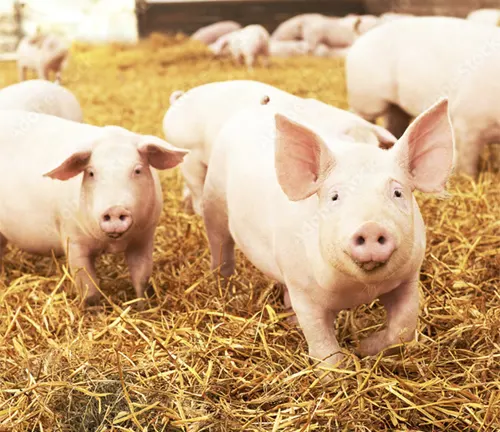
These creatures come in various sizes and colors, from small and cute pot-bellied pigs to larger breeds known for their meat production. Beyond their physical traits, domestic pigs are known for their relatively long lifespan, ranging from 12 to 20 years, depending on the breed and care provided.
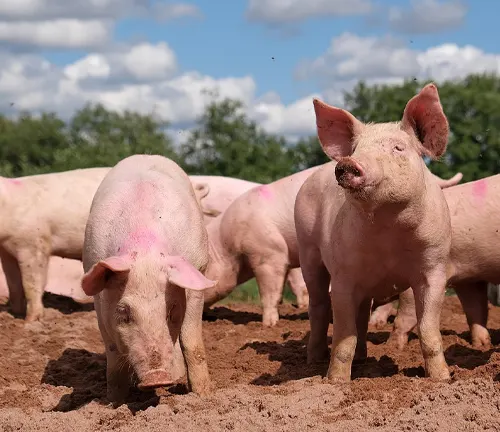
Culturally, pigs hold special significance in many societies, symbolizing prosperity, fertility, and good luck in some cultures. They often feature prominently in festivals and celebrations worldwide. In modern times, domestic pigs have found new roles as cherished pets, thanks to their affectionate nature, intelligence, and ability to form strong bonds with humans.
If you’re considering adopting a pet pig, it’s essential to understand their dietary needs, shelter requirements, and the responsibilities involved in caring for them. These animals have unique needs that, when met, can result in a rewarding and enriching human-pig partnership.
| Attribute | Details |
|---|---|
| Scientific Name | Sus scrofa domesticus |
| Evolutionary Origin | Wild ancestors in Asia and Europe |
| Domestication History | Began around 13,000 years ago |
| Physical Characteristics | Various sizes and colors |
| Average Lifespan | 12 to 20 years, depending on breed |
| Cultural Significance | Symbol of prosperity and good luck in some cultures |
| Modern Roles | Pets, livestock, and more |
| Intelligence | Highly intelligent and trainable |
| Dietary Needs | Balanced diet of grains, fruits, vegetables, and protein |
| Shelter Requirements | Protection from harsh weather conditions |
| Common Health Issues | Obesity, skin conditions, joint problems |
The Fascinating World of Domestic Pigs
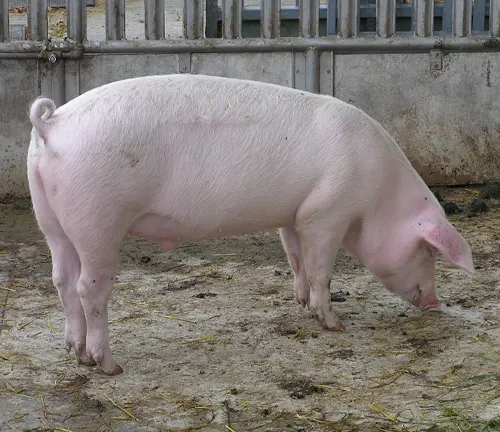
Domestic pigs, known scientifically as Sus scrofa domesticus, are one of the most intriguing and versatile animals to grace our planet. These intelligent creatures have played a pivotal role in human history, serving both as a source of sustenance and as beloved companions. In this article, we’ll dive deep into the world of domestic pigs, exploring their history, characteristics, roles in various cultures, and the modern-day perspective on keeping them as pets.
Evolution and History
Domestic pigs have a rich history that dates back thousands of years. Understanding their evolution is crucial to appreciating their significance in our lives today.
Wild Ancestors
Pigs are believed to have originated from wild boars in Asia and Europe. These wild ancestors roamed the forests, foraging for food and living in social groups. Over time, humans began domesticating them for various purposes.
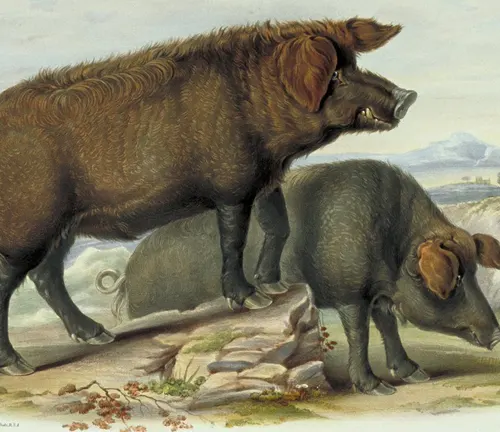
Domestication Process
The domestication of pigs began around 13,000 years ago when early humans realized the benefits of raising these animals. Pigs were easy to feed, grew quickly, and provided a steady source of meat and other products. This marked the beginning of the human-pig partnership.
Physical Characteristics
Domestic pigs exhibit a wide range of physical traits and features that make them unique and endearing.
Size and Appearance
These animals come in various sizes and colors, from small pot-bellied pigs to larger breeds. Their round bodies, floppy ears, and expressive eyes are some of their most distinguishing features.
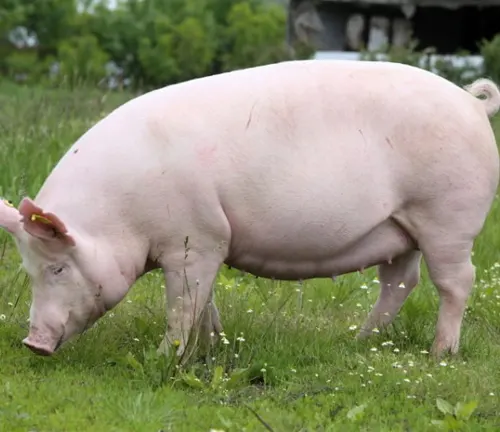
Lifespan
On average, domestic pigs live for 12 to 20 years, depending on their breed and living conditions. With proper care, they can thrive and become beloved members of a household.
Cultural Significance
Pigs have held special cultural significance in many societies throughout history.
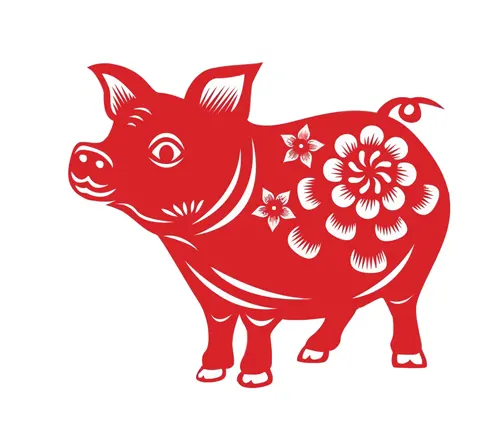
Symbolism
In some cultures, pigs symbolize prosperity, fertility, and good luck. They are often associated with festivities and celebrations, such as the Chinese New Year’s “Year of the Pig.”
Modern-Day Roles
While domestic pigs are still raised for their meat, they have found new roles in the modern world.
Companionship
An increasing number of people are choosing to keep domestic pigs as pets. These animals are known for their affectionate nature, intelligence, and ability to form strong bonds with their human caregivers.
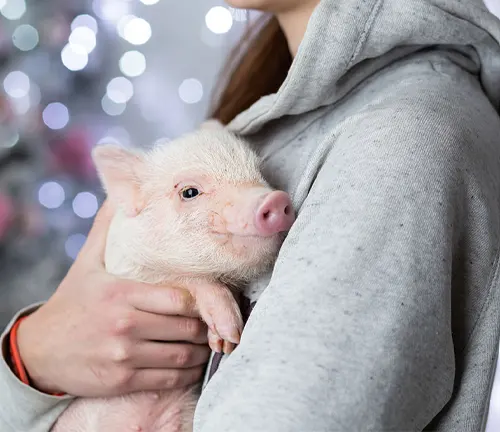
Caring for a Domestic Pig
If you’re considering adopting a pet pig, there are important factors to consider.
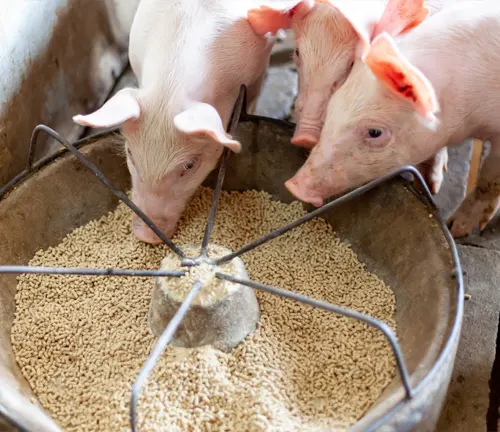
Diet
Pigs have specific dietary needs. Their diet should include a balance of grains, fruits, vegetables, and protein. It’s essential to provide them with a healthy and well-rounded diet to ensure their well-being.
Shelter
Domestic pigs require proper shelter to protect them from harsh weather conditions. Creating a comfortable and safe environment for your pet pig is crucial.
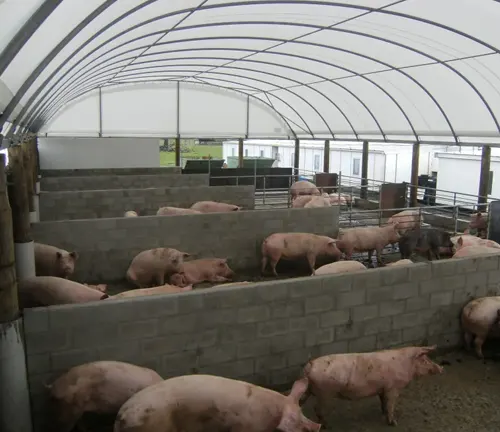
Different Species
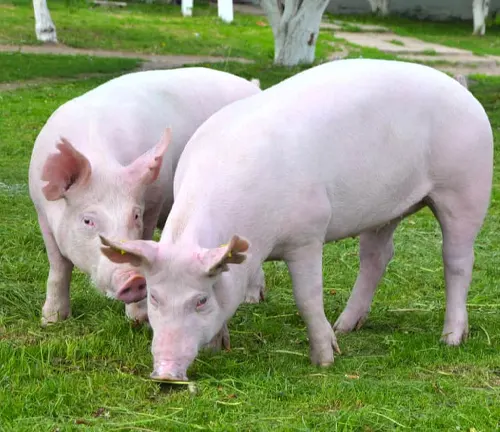
Yorkshire Pig
Yorkshire pigs, also known as Large White pigs, are one of the most popular pig breeds worldwide. They are known for their large size, white coloration, and excellent meat quality.
Duroc Pig
Duroc pigs are prized for their deep red or mahogany-colored coats and well-marbled meat. They are known for their robust build and friendly disposition.
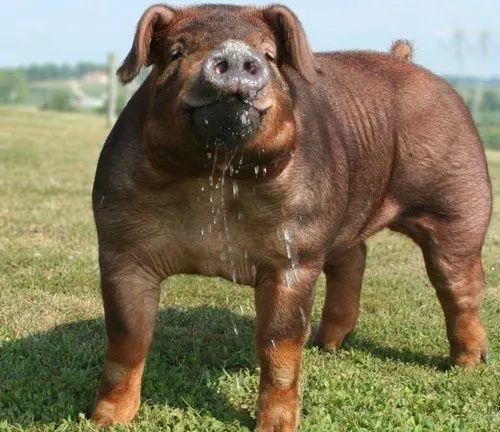
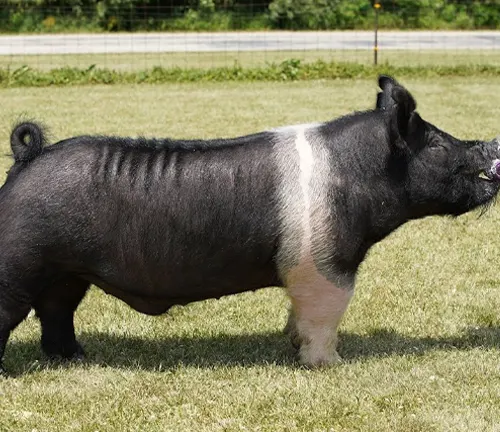
Hampshire Pig
Hampshire pigs are easily recognizable by their black coat with a white belt around their shoulders. They are known for their meat quality and adaptability.
Berkshire Pig
Berkshire pigs are prized for their black coat and white “socks” on their feet, making them easily distinguishable. They are known for their tender and flavorful meat.
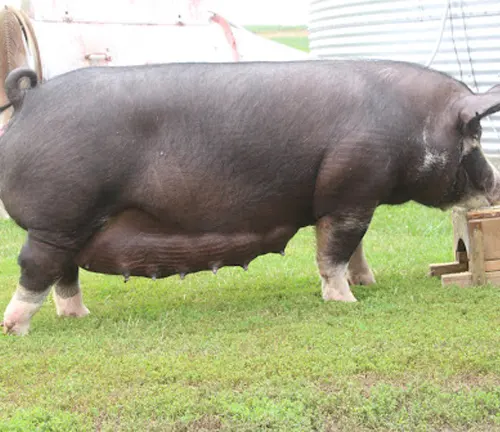
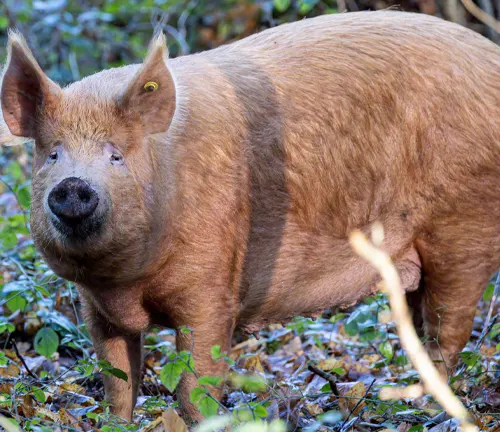
Tamworth Pig
Tamworth pigs are a heritage breed known for their reddish-brown coat and long, upturned snouts. They are hardy and well-suited for outdoor production.
Pietrain Pig
Pietrain pigs are characterized by their muscular build and distinctive black spots on a white coat. They are valued for their lean meat and excellent carcass quality.
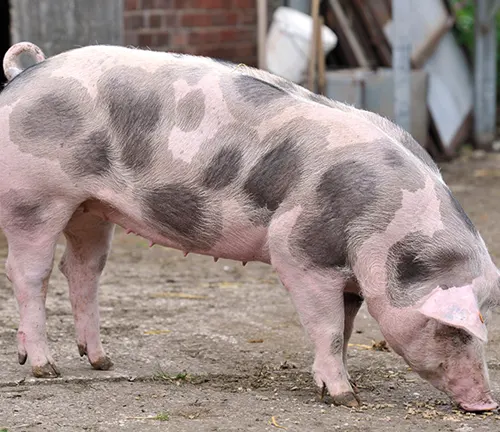
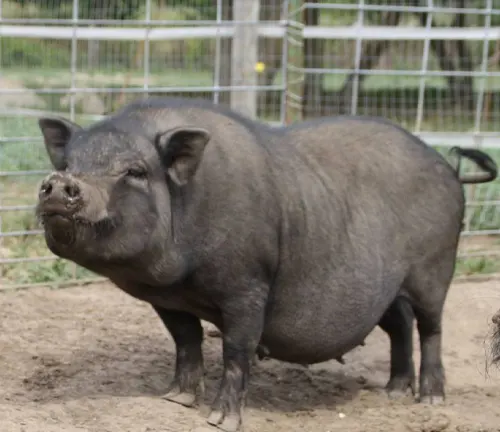
Pot-Bellied Pig
Pot-bellied pigs are smaller in size and known for their round bodies and distinctive pot-bellies. They are often kept as pets due to their friendly nature and manageable size.
Kunekune Pig
Kunekune pigs originate from New Zealand and are characterized by their small stature, tassels (wattles) hanging from their jaws, and various coat colors. They are known for their docile temperament.
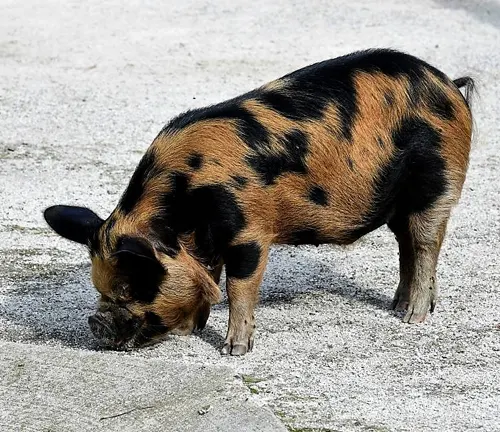
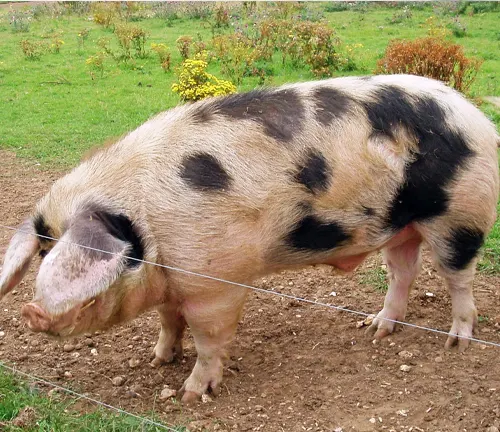
Gloucestershire Old Spot Pig
This breed has a white coat with black spots and floppy ears. Gloucestershire Old Spots are known for their foraging abilities and are often raised in free-range environments.
Oxford Sandy and Black Pig
These pigs have a sandy-colored coat with black spots and are known for their good-natured temperament and adaptability to different environments.
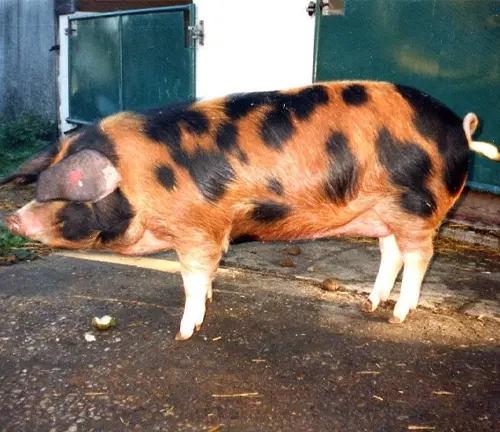
Frequently Asked Questions (FAQs)
- What is the lifespan of a domestic pig?
The lifespan of a domestic pig typically ranges from 12 to 20 years, depending on factors like breed and care. - Do domestic pigs make good pets?
Yes, some domestic pig breeds make excellent pets due to their affectionate nature and intelligence. - What are the dietary needs of pet pigs?
Pet pigs require a balanced diet that includes grains, fruits, vegetables, and protein sources to ensure their health. - Can domestic pigs be litter-trained like cats?
Yes, with proper training, domestic pigs can be litter-trained, making them easier to manage indoors. - Are there any legal restrictions on keeping pet pigs in certain areas?
Regulations regarding pet pigs vary by location, so it’s essential to check local laws and zoning ordinances before getting one as a pet. - What are some common health issues in pet pigs?
Common health issues in pet pigs include obesity, skin conditions, joint problems, and dental issues. - Can you house-train a pet pig to live indoors?
Yes, pet pigs can be house-trained to live indoors, but they require sufficient space and stimulation. - What is the difference between a domestic pig and a wild boar?
Domestic pigs are bred for various purposes and have specific characteristics, whereas wild boars are their undomesticated ancestors with distinct wild traits. - Do all domestic pigs grow to be large?
No, there are small domestic pig breeds, like pot-bellied pigs, which are much smaller in size compared to traditional meat breeds. - Are there rescue organizations for abandoned or mistreated pet pigs?
Yes, there are rescue organizations dedicated to providing homes and care for abandoned or mistreated pet pigs. - Are domestic pigs destructive to gardens or yards?
Domestic pigs can root and forage, potentially causing damage to gardens and yards if not properly supervised or contained. - Do pet pigs require vaccinations and regular veterinary care?
Yes, like any other pets, pet pigs need vaccinations and regular veterinary check-ups to ensure their well-being. - Are there specific breeds of domestic pigs that are better suited for families with children?
Some pig breeds are known for their gentle temperament and are better suited for families with children. - What kind of shelter do pet pigs need?
Pet pigs require shelter that protects them from extreme weather conditions, ensuring they stay comfortable and safe. - Can domestic pigs be trained like dogs?
Yes, domestic pigs are highly trainable and can learn various tricks and commands when properly trained.



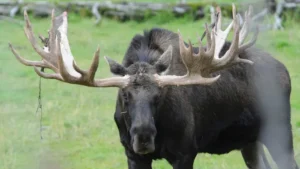
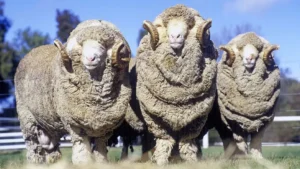
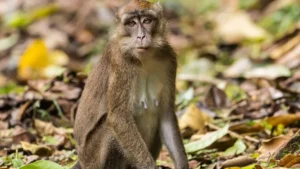





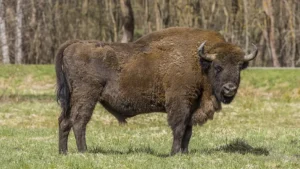
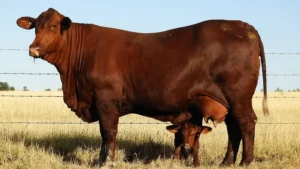
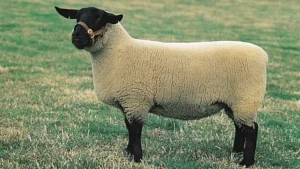
Leave your comment